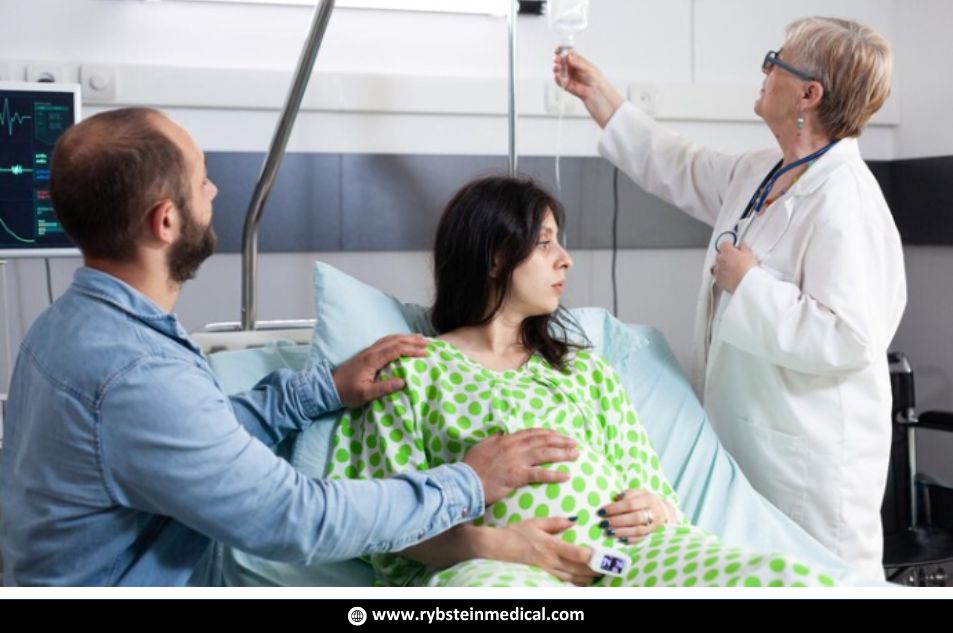The hip is the most crucial joint in our skeletal system. Without it, we wouldn’t afford to walk, enjoy and lead an active lifestyle the way we do!
Chronic hip pain can be difficult to deal with. This article discusses if hip pain can be treated without surgery in detail.
It Depends on the Prevailing Condition!
The cause of hip pain will decide if it needs surgery or not.
If hip pain can be treated with medicines or physiotherapy, no surgery will be recommended.
An orthopedic surgeon will only suggest surgery when it is the only option to relieve hip pain and restore function.
For example, hip osteoarthritis is the major cause of chronic hip pain and disability among senior citizens. It happens when soft tissue, cartilage or articular cartilage, at the ends of hip joint bones gets damaged.
Cartilage damages or degenerates either due to overuse or external traumas. The affected person faces intense pain while walking, stiffness after periods of inactivity and other symptoms like swelling, tenderness, etc.
Osteoarthritis is a degenerative disorder. This condition worsens with time and is irreversible. The only treatment here is Total Hip Replacement Surgery. So, if you are suffering from hip pain because of hip osteoarthritis, you will require surgery for its treatment.
Furthermore, soft tissue injuries can also cause hip pain. It can happen because of overuse or external traumas. For example, walking more steps than usual will strain hip muscles, tendons, ligaments and bones and you will feel pain temporarily.
Yet, an external trauma might also lead to severe soft injuries like complete damage of ligaments or tendons. In that case, surgery is essential to treat the situation.
Hip pain that has lasted for long must be examined by an orthopedic doctor as soon as possible. The exact diagnosis is extremely crucial here as chronic hip pain has multiple causes.
If popping painkillers only provides temporary relief from pain, meet with a hip specialist. To book your appointment, visit the following link: best doctor for hip pain in Delhi.
Hip Conditions That Require Surgeries
Osteoarthritis: This condition happens as a result of the damage of soft tissue, also known as cartilage. This cartilage is found at the ends of joints. When this soft and flexible part over bone ends in the hip gets completely damaged, hip bones rub against each other.
This rubbing causes pain while moving. Patients also have to face stiffness, tenderness, swelling, etc.
This condition is irreversible and thus surgery is the only option, typically Total Hip Replacement Surgery.
To learn more about hip replacements, refer to the heading below on, “Types of Hip Replacements.”
Rheumatoid Arthritis: It is an autoimmune disorder. In this disease, the body’s immune system starts attacking healthy tissue in the body. This initiates the inflammation of the healthy joints. This inflammation leads to chronic hip pain and mobility issues.
Joint stiffness, pain and swelling usually become prominent after inactivity like sleeping or prolonged sitting and standing.
If RA has severely damaged your hip joint, surgery is required to relieve pain and regain mobility.
Post-Traumatic Arthritis: External trauma like an intense road accident can cause considerable damage to the hip. The hip joint is a ball and socket joint. An intense trauma can affect it in various ways like dislocation, fracture, soft-tissue injuries etc.
Joint inflammation, arthritis, after an injury is called post-traumatic arthritis.
If an injury to the hip is mild, the pain will go away with enough rest, ice packs, elevation and physiotherapy. Mild soft injuries don’t require surgery.
However, too much injury to the hip can lead to chronic hip pain. Here, conventional treatments won’t offer lasting relief. In that case, an orthopedic doctor recommends a surgical procedure.
Hip Deformities: Many people suffer from hip abnormalities that occur by birth or during growth years. There are several types of hip deformities. Some of these deformities are as follows:
● Hip Dysplasia
● Perthes Disease
● Slipped Capital Femoral Epiphysis
● Femoroacetabular Impingement
● Hip Fractures
These deformities result in chronic hip pain, stiffness, inflammation and mobility restrictions. Under such conditions, you need surgical treatment to cure chronic hip pain.
Such deformities can be treated with joint arthroplasty or arthroscopy. An orthopedic surgeon will decide the most suitable surgical intervention for you.
Soft-Tissue Injuries: The hip joint doesn’t just contain bones but soft tissue as well like cartilage, ligaments, tendons, synovium, bursae, muscles etc.
Thus, hip pain can also be caused by injuries to such soft parts of the hip, commonly known as soft tissue injuries.
Every soft tissue injury doesn’t require surgery as mild sprain and strain get cured on their own with adequate rest, compression, elevation and physiotherapy.
Intense soft injuries cannot be treated without surgery, for example, a complete tear of the ligament or tendon. Such severe injuries to tendons and ligaments can be treated with either open surgery or arthroscopy—a minimally invasive keyhole procedure.
Visit the following link to book your appointment with orthopedic surgeon in West Delhi.
Types of Hip Replacements
We have discussed various hip conditions above where joint replacement surgery can treat chronic hip pain and help with severe immobility.
To elaborate on hip arthroplasty, there are two types of hip replacements: first, total hip replacement and second, partial hip replacement.
THR or Total Hip Replacement Surgery: In a total hip replacement, all the damaged parts of the hip are removed and then a new joint is resurfaced with the help of artificial parts or implants.
These implants are made out of metal and plastic. The artificial parts used in THR are the acetabular cup, plastic liner, femoral head and femoral stem.
A total hip replacement can be bilateral or unilateral. Under a bilateral procedure, both hip joints are resurfaced. A unilateral total hip replacement denotes the surgical resurfacing of just one hip joint.
Partial Hip Replacement Surgery: Under partial hip replacement surgery, only the femoral head is replaced while the acetabulum remains the same. Thus, in partial hip arthroplasty, only the damaged portion of the hip joint is resurfaced.
Just like THP, partial hip replacement surgery can also be unilateral and bilateral.
Conclusion
Hip pain can be treated without surgery. An orthopedic surgeon will perform surgery only when the condition causing pain cannot be cured with normal medications and physiotherapy.
Today, with advanced techniques and treatment options, complications after surgery such as infection, blood clots and tissue damage have reduced considerably. Thus, one recovers normally and fast.


